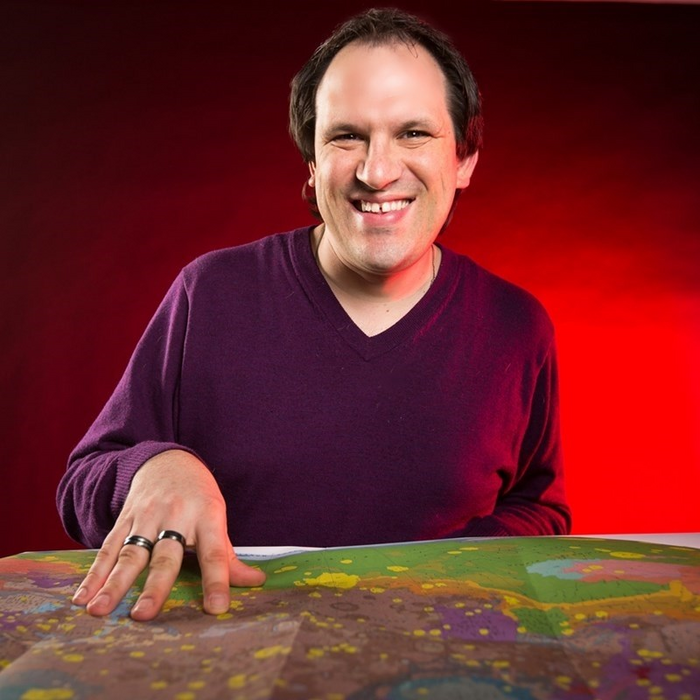Vincent Chevrier, an associate professor at the U of A Center for Space and Planetary Sciences, has been awarded $680,000 from NASA to study the chemical reactions of complex carbon chains, called tholins, with liquid hydrocarbons. He will do so through experimental investigations designed to simulate conditions on the surface of Titan.

Credit: University Relations
Vincent Chevrier, an associate professor at the U of A Center for Space and Planetary Sciences, has been awarded $680,000 from NASA to study the chemical reactions of complex carbon chains, called tholins, with liquid hydrocarbons. He will do so through experimental investigations designed to simulate conditions on the surface of Titan.
Known for its cloudy orange color, Titan is the largest satellite of Saturn and the second-largest moon in our solar system. Titan and Earth are the only two planetary bodies known to have stable bodies of liquid on their surface, providing a meaningful point of comparison.
Titan’s cloudy orange color is a result of solid organic molecules called tholins. In an article published in Discover, Korey Haynes stated that “broadly speaking, tholins are complex carbon chains made when ultraviolet light strikes carbon-rich molecules like methane, ethane or nitrogen. The result is a reddish, tarry substance.” Tholins were first identified by Carl Sagan and Bishun Khare in the 1970s and subsequently named by Sagan.
In his proposal to NASA, Chevrier noted that “because of its complex organic chemistry, Titan has often been described as a ‘frozen’ prebiotic [before the emergence of life] Earth, and its study may bring valuable insights into our prebiotic atmosphere and how life emerged on Earth. Moreover, one of Titan’s most interesting aspects is the possibility for these exotic solvents to host prebiotic chemistry, which in turns has implications for possible exoplanets hosting similar hydrocarbon solvents.”
There are three questions Chevrier is seeking to answer by studying the interactions of tholins with liquid hydrocarbons:
- Are tholins soluble in the liquid hydrocarbons present at the surface of Titan? This question relates to the composition of Titan’s lakes.
- Are tholins reacting with minor polar compounds dissolved in the lakes? This question relates to a possible chemical activity in the lakes.
- Can tholins be detected in Titan’s lakes? This question relates to the detectability of complex organics in the lakes for future missions on Titan’s surface exploration.
Because Titan is 746 million miles from Earth, and $680,000 would barely cover pretzels on a SpaceX flight, Chevrier will have to simulate Titan-like conditions here on Earth. He’ll do this by utilizing a unique simulation chamber that can be reduced to -180 degrees Celsius. He and his team will simulate the atmosphere of Titan inside the chamber while introducing various synthetic tholins to it and exposing them to different liquid hydrocarbons. Over the course of three years, he plans to conduct dozens of different experiments involving a variety of solvents, like liquid methane, and different tholins at varying temperatures.
The three-year award comes via the NASA ROSES (Research Opportunities in Space and Earth Sciences) 2022 Solar System Workings Program.




